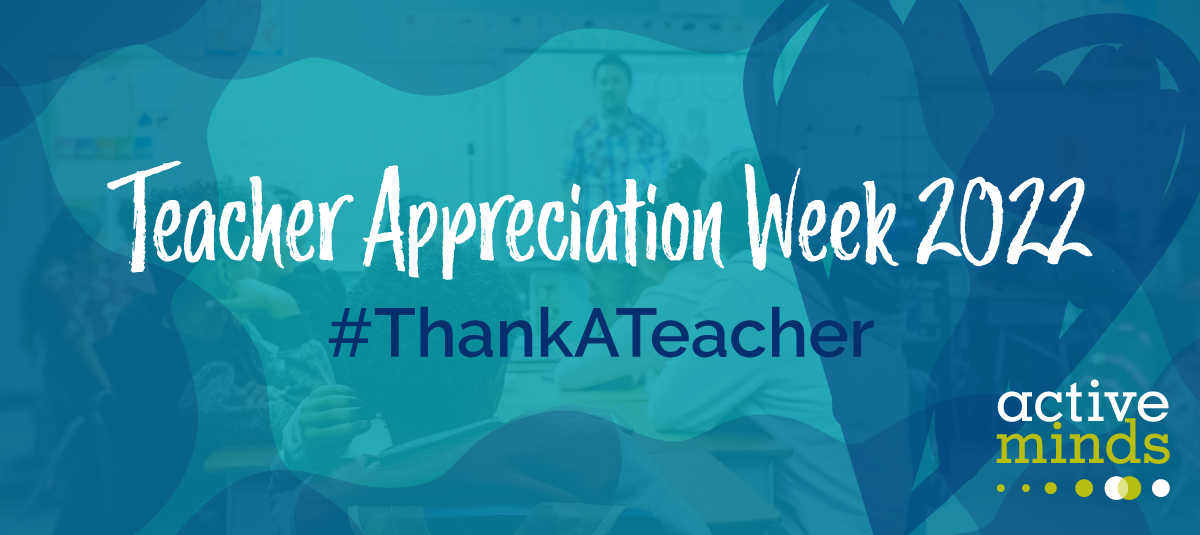I’m the son of two public school teachers. Because of this, I would like to think I have a unique perspective on just how much educators can change the lives of others (discounting that I was quite literally raised by educators). My parents have taught all sorts of students from a variety of backgrounds and have seen first-hand the effect a teacher can have on a student’s life. They’ve taught students with a myriad of struggles, and have been intentional in learning how they can best support these students. They’ve shown me that teaching is about so much more than just grades or tests; it’s about furthering students’ education, supporting their goals, and safeguarding their mental and emotional wellbeing.
Whether they be physical or mental, personal or academic, at school or home, at some point every student will face a challenge that they feel they can’t overcome alone. This is especially true following the COVID-19 pandemic, which exacerbated mental health struggles for many. Despite many schools now returning to in-person education, the obstacles highlighted by the pandemic still exist, and educators will continue to be pivotal in creating an environment that supports a positive mental health culture.
In light of this, as well as in the spirit of Teacher Appreciation Week, I’d like to highlight two teachers (that aren’t my parents, though I did have my mom as a teacher twice) that have helped me with my mental health as a student, as well as provide some takeaways from those teachers for others to reflect on as they continue to find ways to support their students.
The first teacher that came to mind is Dr. Erinanne Saffell. During the earlier part of the pandemic, I took an online climatology class of hers. That semester specifically, I suffered more than usual with depression and motivation. I ended up missing the due date of the final exam as a result of that – changing my grade from an A+ to a C- and ruining my GPA. My heart sank until I saw a message from Dr. Saffell in my inbox. She said she was aware of the very real hardships of the pandemic for students, and as a result, would extend the due date of the final exam by two days – just enough time for me to finish it and close out the class with my original A+. Instead of being rigid and letting students suffer as a result of that, the leniency that Dr. Saffell provided saved my academic career. Leniency and understanding are hallmark traits of a supportive teacher, and I will forever be thankful to Dr. Saffell for how she supported me and my fellow students over the pandemic.
The second person that came to mind for me when writing this was my high school’s social worker, Mr. Keith Allen. While he’s not technically a teacher, I think school support staff should also get the appreciation they deserve this week. I went through a lot of mental health struggles throughout high school, especially in my junior and senior years, and throughout them, Mr. Allen was there to support me. When I was alienated by my peers because I was “sad” to be around, having someone to talk to about what I was going through meant the world to me. When I needed to have difficult conversations with others in my school about my mental health, having Mr. Allen present to mediate allowed me to get through those conversations when otherwise I wouldn’t have been able to. The presence of an empathetic, listening ear can make all the difference, and I’d encourage all teachers to be that for their students when possible.
These two examples are who I immediately thought of when I started writing this article, but truthfully I could go on and on about the many amazing teachers I’ve had over the years and how each of them has positively shaped who I am today. Were it not for their effort and support I wouldn’t be half the person I am today, and I mean it when I say that a good teacher can be the difference between a student feeling supported in their mental health or feeling alone. I learned these lessons from teachers, but truthfully, we could all benefit from making them part of our daily interactions: give leniency when possible, and be open to listening to those looking for support. These simple actions can make a massive difference. And this week and beyond, let’s show continued appreciation for the teachers in our lives and all they’ve done, above and beyond what’s required of them, to keep us safe and happy over the years.




